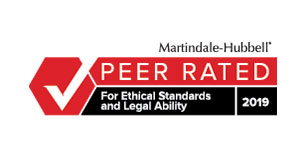If you’ve recently been injured in an accident and cannot work as a result, one option you have is to file for long-term disability benefits under the Employee Retirement Income Security Act of 1974 (ERISA). But what happens if your application for long-term disability gets denied? Here is what you should know about an ERISA appeal.
ERISA is typically purchased by your employer, but the plan administrator who determines whether claims will be accepted or denied is a third-party insurance carrier. That administrator may classify you as not being disabled, even if your doctor says you are.
However, you don’t have to take no for an answer in such a circumstance. ERISA allows you to appeal the plan administrator’s decision. If you have had your application denied, it is important to seek legal assistance immediately, as you only have 180 days from the date of your denial to file the appeal.
The following are some steps to take to improve your chances of success in your ERISA appeal:
- Get a copy of the disability policy documents: You should be able to get copies of the long-term disability plan from your company’s human resources department or directly from the insurance provider. If either of these sources fails to provide you with what you need, make a request in writing from the insurance company’s plan administrator, who is required to give them to you under ERISA.
- Analyze the denial: With the assistance of your attorney, review the denial letter and determine why your initial claim was rejected. Take note of any information you might need to approve your claim, along with any deadlines listed on the denial letter.
- Collect evidence: Gather as much evidence in your favor as you can before beginning the appeals process. Find any missing medical records you need and figure out if there are any additional medical tests that could support your case. You might also request letters from physicians or expert testimony from your doctors or vocational experts who will know exactly what types of jobs a person with your impairments can and cannot do.
- Let your attorney handle the rest: Your legal counsel can take care of filing all the appeals paperwork and communicating with the plan administrator.
To learn more about how to best deal with long-term disability denials and the ensuing appeals process, speak with a knowledgeable West Virginia personal injury lawyer at Prim Law Firm, PLLC. Call our firm at 304-201-2425 or contact us online to schedule your free initial consultation.



